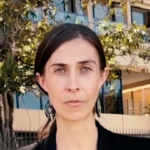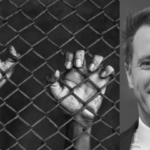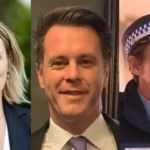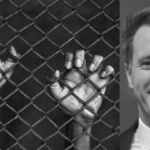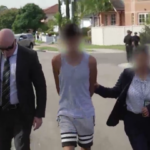NSW Government’s Youth Incarceration Drive Lacks Vision or “Any Deep Sense of Justice”
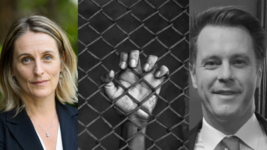
“No one wants to be in the situation where we are locking up young people,” NSW premier Chris Minns told Sunrise on 18 March 2024, just days after his government’s new tough-on-youth-crime laws were introduced into state parliament, and the day prior to their passage through the lower house.
“When you’ve got a repeat cycle of crime being committed, arrests being executed and then released back into the community, over and over again,” the NSW Labor leader continued, “well, you do need to think whether this is even in the best interests of the child.”
The laws, which passed the Legislative Council on 22 March, involve 14- to 17-year-olds who commit serious break and enter or car theft while on bail for these same offences, then being remanded in custody after a bail application, while those boasting about the commission of such crimes online can cop up to 2 years extra prison time.
The Sunrise host further queried Minns on locking up more kids in gaol, as other jurisdictions, such as Victoria, are considering raising the age of criminal responsibility, a move that will see less kids inside, and he responded that he’d also committed to $26 million worth of “wraparound services”.
However, the brief breakfast television segment made no mention of Minns’ decision not to raise the age of criminality, which ensures 10- to 13-year-olds will continue to be imprisoned, and nor was the point made that the majority of the children affected by these laws will be First Nations kids.
Band-aid solutions
“You wouldn’t know it from the headlines, but this is a story that’s fundamentally about the ways in which regional communities and their young people have been failed,” said NSW Greens MLC Sue Higginson.
The peculiar aspect to Minn’s 12 March announcement of his early intervention and prevention crime package is that the spike in regional crime warranting these laws, the ‘wraparound services” and a special focus on the northern NSW town of Moree, is that it all appeared out of nowhere.
The BOCSAR report outlining the figures to justify the crime package was released to the public two days after the laws were introduced, and a string of articles with sensational headlines relating to youth crime in regional NSW, and especially Moree, began appearing in the days after its release.
During the Sunrise segment, Minns further cited figures to support his crackdown on First Nation youth, with car theft having risen by 140 percent in Moree shire, while break and enter had spiked by 40 percent.
“We should have seen calls for deep and urgent investment and support,” said Higginson, hinting that there are alternatives. “But all we got was sensationalist clickbait that wrote off 5-year-olds, First Nations kids, and kids with disabilities as pathologically criminal. It was frankly appalling.”
Keeping up appearances
As the NSW Greens member pointed out, “crime has been steadily declining for decades across New South Wales” and she added that crime “committed by young people is not new and its causes are extremely well understood.”
The NSW Bureau of Crime Statistics and Research (BOCSAR) report that’s supposed to lend credence to Labor’s youth crime crackdown outlines that most major offences have been trending downwards over the past two decades, although property and violent crime is higher in regional areas.
Most major offences in regional NSW remained at a lower rate than in 2019. However, four major offences have been increasing, two of which the BOCSAR researchers identified as being due to children under the age of 18, and those offences were motor theft and nondomestic assault.
Another curious aspect to Minn’s youth crime strategy is that the second type of crime it targets, break and enter, is actually trending downwards, according to BOCSAR.
“The tough-on-crime approach is an unconscious reflex for leaders who lack vision, ambition, understanding of the criminal justice system and any deep sense of justice,” Higginson, the NSW Greens justice spokesperson, stressed.
“I am afraid it’s becoming clear that Chris Minns and his advisors lack all of these things,” the lawyer added. “It can, in the short-term, prove to be a politically popular path, but it is a cheap and dangerous response to a crisis.”
Locking up Aboriginal kids
“Ensuring community safety is a key priority for the Minns Labor government,” said NSW attorney general Micheal Daley, on introducing the bill. “Reports from communities in regional NSW… indicate that our regions have been experiencing higher rates of crime than metropolitan areas.”
The legislation inserted new section 22C into the Bail Act 2013 (NSW), which contains the prohibition on granting 14- to 17-year-olds bail if they’re already on conditional release after having committed either motor theft or serious break and enter and they then commit one of these offences again.
The specific offences relating to motor theft and break and enter that this bail stipulation applies to are listed under section 22C. And this law sunsets after a 12 month period, at which time it will be reviewed by parliament and considered as to whether it should be ongoing.
And Daley’s legislation further created the new offence of performance crime, which is contained under new section 154K of the Crimes Act 1900 (NSW), and involves an individual committing either motor theft or a break and enter crime, and then posting about it online.
The penalty that applies to this offence, which is popularly referred to as “posting and boasting”, involves the maximum penalty that applies to the regular motor theft or break and enter crime that’s been committed, as well as an additional two years imprisonment on top of that.
“When these new youth crime laws were debated, Labor MPs could barely mask their disgust for their own legislation,” Higginson recalled, “and some didn’t.”
“But this premier makes top-down decisions, chasing popular headlines and easy radio interviews,” she continued.
“Unfortunately, the slow, deep and compassionate work that is truly required to cut off crime at its source does not sell newspapers or rile up talkback radio hosts.”
Smoke and mirrors
Minns didn’t just condemn the First Nations youth of NSW to the revolving door of the criminal justice system and forget about it, as in early April, he then flew to Moree with a group of rugby league stars to launch Project Pathfinder: a mentorship program to set youth on the right track.
However, in what’s fast appearing to be the Labor premier’s hardline attitude, this mentorship program that’s supposed to present First Nations youth in Moree with a promising future path is not open to children who’ve fallen foul of the law already.
So, young First Nations youth, who are being targeted by these tough-on-crime measures and would also appear to be those most in need of mentorship, are purposefully being denied it, seemingly because the premier can’t see past his penchant for locking up kids.
“Flying in superstars may grab headlines,” said Higginson, “but it won’t help the First Nations kids in Moree who say they look forward to being locked up because prison is where their mates are and it’s the only place they can access job training.”
And the Greens MLC further questions whether the fly-in fly-out trip would have “won the hearts and minds of locals”, especially as the main thrust of the attention that the NSW premier has given the town of Moree is to ensure more of its First Nations youth will soon have their liberty denied.
“The people who can help these communities thrive are already part of those communities,” said Higginson, who was stating sentiment that much of the community would agree with.
“They are First Nations elders and leaders, social workers, teachers and educators, nurses and medical professionals. They know what will work,” the Greens member further outlined basic truths that major party politicians are either ignorant of or simply ignore.
“The government’s job is to listen and then give them what they need to get on with it,” she ended.


